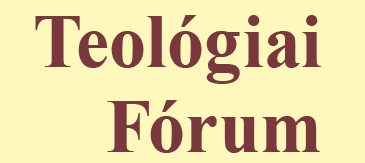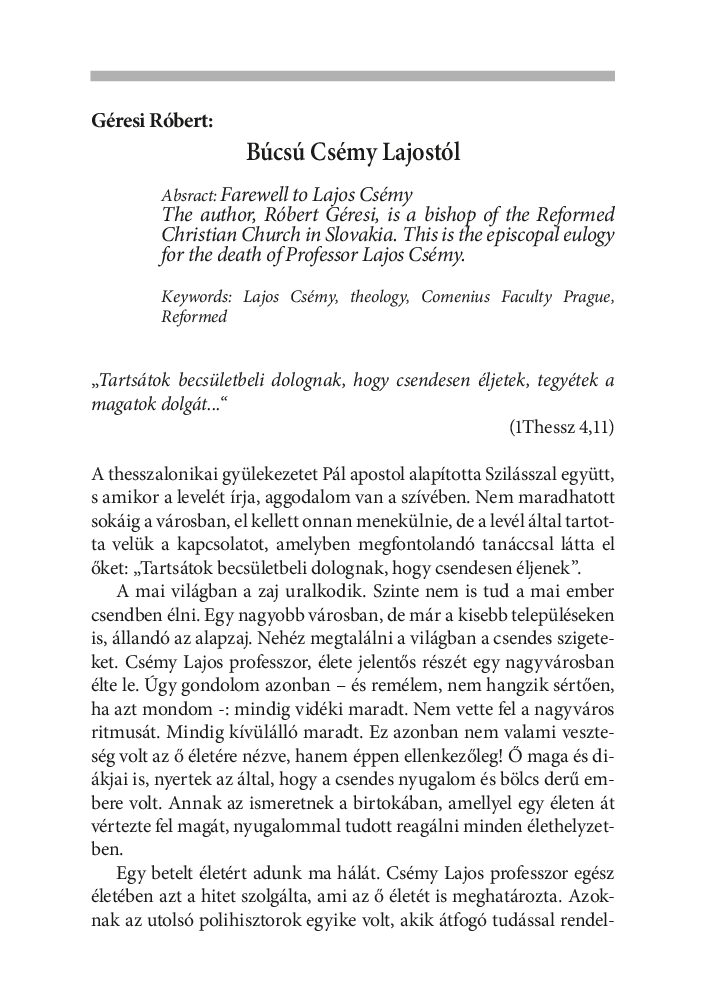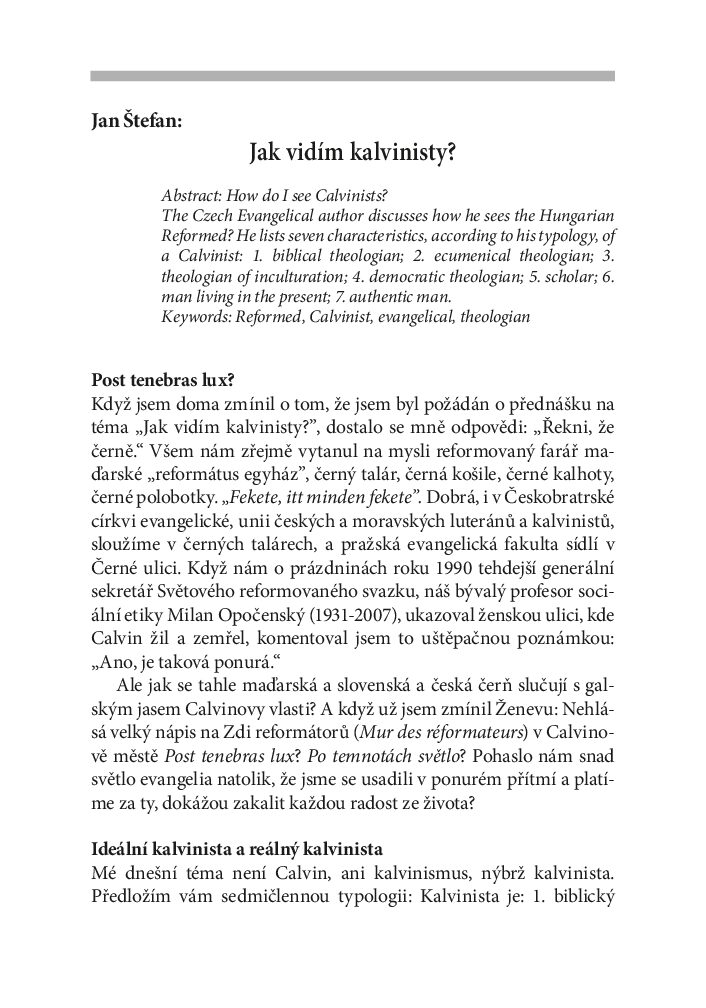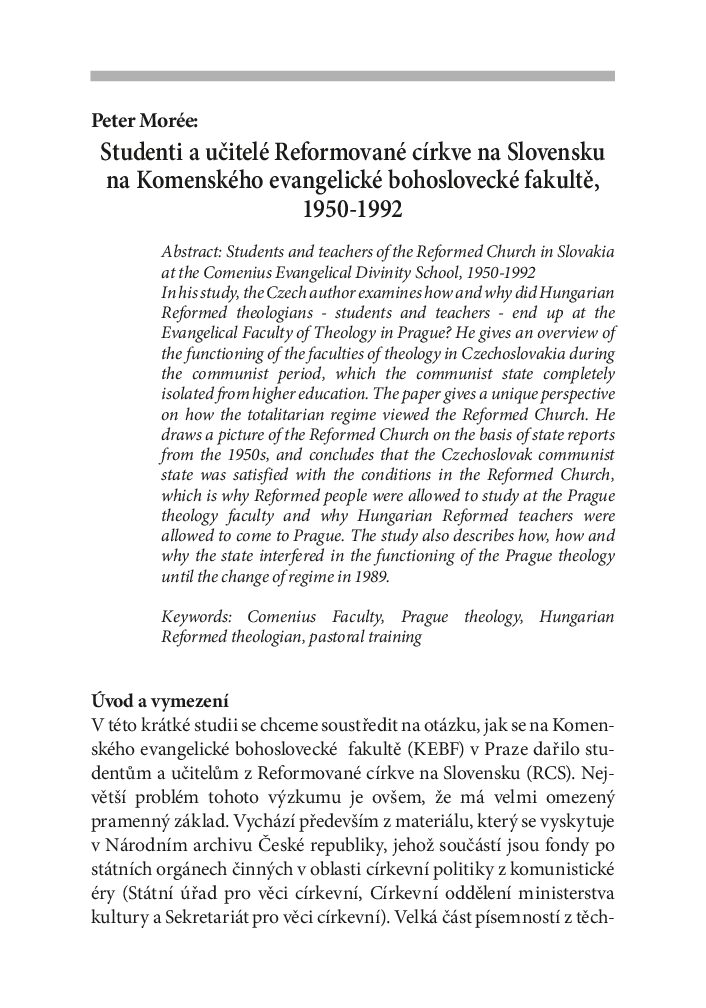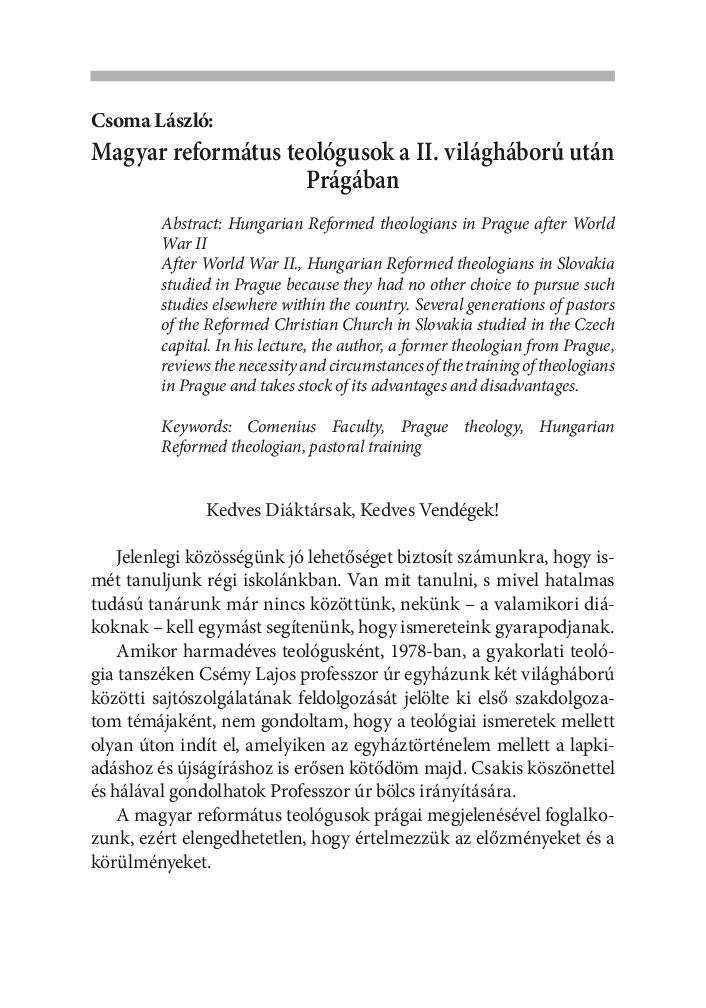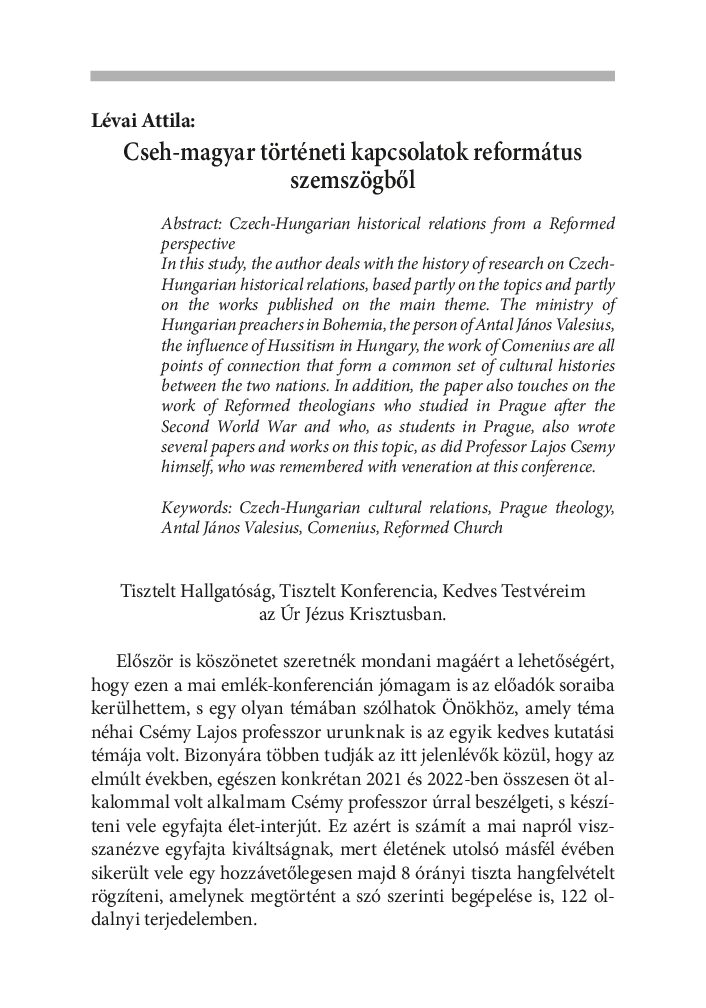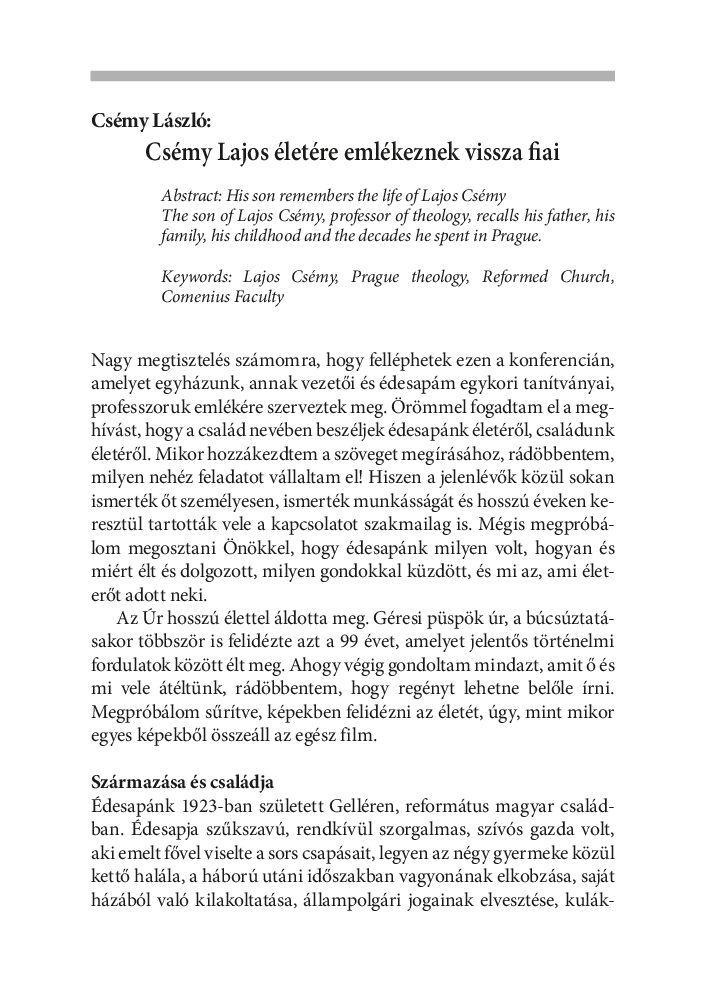Kónya Péter: Szlovák református gyülekezetek a Tiszáninneni esperességekben
Abstract: An interesting feature of the spread of the Helvetic movement in Upper Hungary during the Reformation century is that the Calvinist movement was massively adopted not by the Hungarian, but rather by the Slovak population. Thus, one of the results of the Reformation was the establishment of a few dozen Slovak Reformed congregations in the Tisza inland dioceses, especially in the dioceses of Ungi, Zempléni, Abaúji and, briefly, Sárosi. The largest number of Slovak Reformed congregations was in the diocese of Ungi, in Zemplén and Ung counties. A part of them survived the Counter-Reformation period and formed into an accepted Reformed congregation after the Edict of the Tolerance. This study presents a short history of these Slovakian Reformed congregations.
Keywords: reformation, diocese of Abaúj, diocese of Abaúj, diocese of Zemplén, diocese of Ungi, diocese of Ungi, diocese of Zemplén, Slovak congregations, Upper-Hungary, helvetic direction
